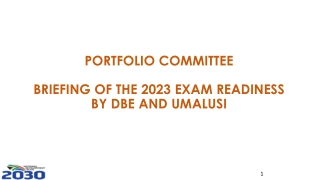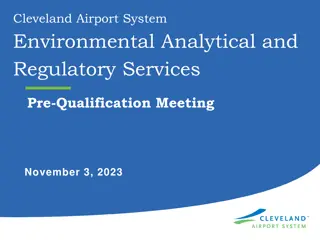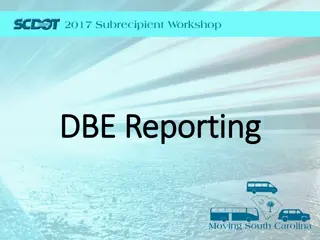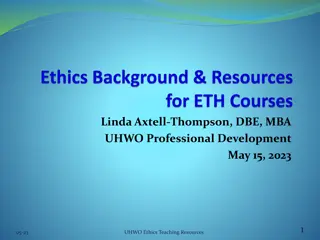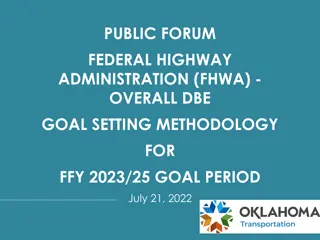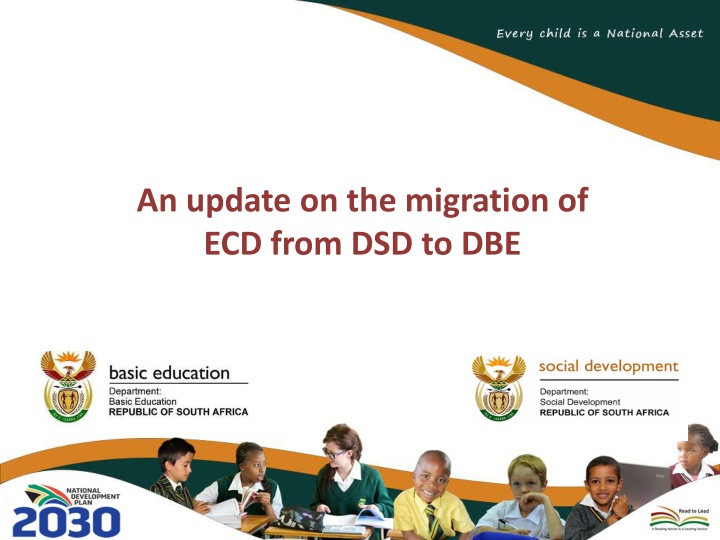
Update on ECD Migration to DBE and Impact of COVID - Education Focus
Explore the latest developments in the migration of Early Childhood Development (ECD) from the Department of Social Development (DSD) to the Department of Basic Education (DBE). Delve into strategic initiatives, access to early learning opportunities, the impact of COVID on ECD attendance, and progress in shifting ECD functions. Stay informed about key timelines and legal proclamations affecting ECD services.
Download Presentation

Please find below an Image/Link to download the presentation.
The content on the website is provided AS IS for your information and personal use only. It may not be sold, licensed, or shared on other websites without obtaining consent from the author. If you encounter any issues during the download, it is possible that the publisher has removed the file from their server.
You are allowed to download the files provided on this website for personal or commercial use, subject to the condition that they are used lawfully. All files are the property of their respective owners.
The content on the website is provided AS IS for your information and personal use only. It may not be sold, licensed, or shared on other websites without obtaining consent from the author.
E N D
Presentation Transcript
An update on the migration of ECD from DSD to DBE
STRATEGICFOCUS SDG: Target 4.2 of SDG 4: by 2030, all girls and boys have access to quality ECD, care and pre- primary education, so that they are [school] ready for primary education . The AU s 2063 Agenda: Expand universal access to quality early childhood, primary and secondary education . National Development Plan: make ECD a top priority among measures to improve quality education and long term prospects of future generations Priority of the 6thAdministration. Priority in the Basic Education Sector plan and DSD MTSF. 5
ACCESS TO EARLY LEARNING OPPORTUNITIES Percentage of children in each age group that are participating in an ELP Based on the 2009 and 2018 GHS Access to Early Learning Programmes has increased over the past 10 years, with 69% of 4 year olds attend an ELP in 2018 Source: 2009 and 2018 General Household Surveys. Notes: The categories which were considered in the calculations are primary schools, Grade R, pre-schools, cr ches and ECD centres. 10
IMPACT OF COVID ON ECD ATTENDANCE Percentage of children 0-6 years old that are participating in an ELP Based on the wave 2 NIDS CRAM survey (August 2020) In July/ August Only 13% of children aged 0-6 were attending ECD programmes by mid-July to mid-August compared to 47% in 2018. 11
PROGRESS ON ECD FUNCTION SHIFT 17
TIME LINES Stakeholder Engagement Detailed Business Plan: What needs to be done by whom and by when? Validation sessions: Are the findings of the diagnosis valid? Review Session: What does the diagnosis tell us about how we should transfer the function? (Oct - Nov 20) ECD Diagnosis: What does the function entail? Implementation of the business plan activities Function shift concluded Inception Period (Mar-July 20) (Feb. 20) (Oct. 20-Mar. 21) (April 21) (Aug. 20) (Oct 20) 20
PROCLAMATIONS Chapter 5 of the Children s Act, 2005 (Act No. 38 of 2005) ("the Children's Act"), and all amendments thereto, in respect of only partial care facilities that provide early childhood development services as defined in S91(2) of the Children s Act and ECD programmes as defined in S91(3) of the Children s Act. Chapter 6 of the Children s Act, and all amendments thereto in relation to ECD programmes. 26
NEW ECD FUNCTIONSAT NATIONAL National Strategy: Include in the departmental strategy a comprehensive national strategy aimed at ensuring an appropriate spread of partial care facilities & securing a properly resourced, coordinated and managed ECD system; Legislative and policy development; Set national norms and standards for partial care facilities and ECD Programmes; Promulgate regulations where relevant; To provide support, guidance and capacity development opportunities to provincial departments on early childhood development services; and To monitor the way in which provincial departments of social development implement national policies, norms and standards. 21
NEW ECD FUNCTIONSAT PROVINCIAL Ensure that national policies, legislation, strategies and priorities are implemented within the means of the provincial department; Develop Provincial strategy: Within the national strategy contemplated and provide for a provincial strategy to ensure an appropriate spread of partial care facilities and ECD Programmes in the province; Record-keeping: Maintain a record of all the registered partial care facilities & ECD programmes in the province, indicating the types of partial care facilities and the number of each type of facility; and Data for planning: Compile a provincial profile at the prescribed intervals in order to make the necessary information available for the development and review of the strategies. 22
NEW ECD FUNCTIONSAT PROVINCIAL Inspections and enforcement: Conduct inspections at the prescribed intervals of partial care facilities in the province to enforce the provisions of this Act. Provision and funding of partial care & ECD programmes: Partial care facilities and ECD Programmes for the province may be funded from money appropriated by the relevant provincial legislature; and To provide transfer payments for ECD services in line with the existing financing policies and guidelines. Registration of partial care & ECD programmes: Partial care facilities and ECD programmes must be registered with the provincial government of the province where that facility is situated; and Keep a provincial register of all registered ECD services. 23
NEW ECD FUNCTIONSAT PROVINCIAL Conditional registration: The registration or renewal of registration of a partial care facility & ECD programme may be granted on such conditions as the provincial head of social development may determine, including conditions. Cancellation of registration: The provincial head of social development may cancel the registration or conditional registration of a partial care facility. Appeal and review of certain decisions: An applicant or a registration holder aggrieved by a decision of a provincial head of social development in terms of chapter 5 (or ECD Programme chapter 6) of the Act may lodge an appeal against that decision in the prescribed form within 90 days with the MEC for social development, who must decide the appeal within 90 days of receipt thereof. 11
THE VISIONFOR ECD Acknowledging the complexity and presenting a time frame The long history of unequal and uncoordinated provision of ECD in South Africa makes the journey to the vision of universal access to quality ECD programmes complex and multi-faceted. For this reason, the proposed vision sets out what should be achieved over the next 10 years, that is, by 2030. However, it is important that the vision is articulated and communicated as soon as possible so that all role players can begin to review their practices and gear up for the envisaged ECD of 2030.
THE VISIONFOR ECD The five strategies for improving the quality of ECD in South Africa: 1. Curriculum-based early learning for all children birth to 5 years implementing the NCF 2. Early childhood development programmes for all children birth to 5 years a continuum of programmes 3. Training and development for all those working in ECD career paths, with intensive but flexible training opportunities 4. Co-ordination of all early childhood development services 5. A flexible funding and provisioning framework

